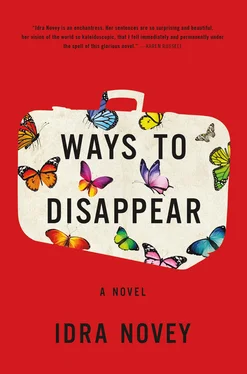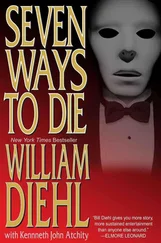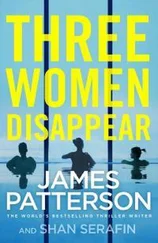At one point, she thought she heard Marcus suggest that if they were going to pursue something based on their mother’s writing, they had to admit that Emma knew much more about their mother as a writer than they did.
Or perhaps that was just what Emma wanted to overhear.
In any case, she had her triumph in this card on her lap, elegantly written in the formidable script of Roberto Rocha. She hadn’t known that Beatriz had stayed in touch with him after moving on to her trade publisher in Portugal. The card was mostly gossip and exhaustive descriptions of entrées. But in one of the paragraphs, after an elaborate report on a lemongrass sauce for chicken kebabs, Rocha wrote, All of this is to say we’ll be having chicken when you come next week, my dear. As for your phone call, you know I’m always here to serve as your Gonzaga.
Emma knew of only one Gonzaga in Brazilian literature. To confirm her hunch, she clicked out of her email, away from Miles and the urgent requests from Julia for her office hours. The information floated up from the turbid sea of Google trivia: twenty-six hits for Antonio Gonzaga, youngest son of the Gonzaga mining empire in the state of Minas Gerais, benefactor of various modernismo writers and the cubist painter Vera Coutinho.
She typed in Roberto Rocha next, something quickening inside her. Before she could find the website for Rocha’s press, she had to scroll through pages of lifestyle articles about various extravagant Rocha siblings — one who’d bought a $50,000 Italian wedding gown and one who traveled only by helicopter and threw wild parties on his three-story yacht. After all the glitz of his brothers and sisters, the website for Rocha’s press seemed not just outdated but primitive. It featured nothing but a list of titles. There were no pictures of the authors, no links or blurbs. The only image on the page was a picture of the ornate colonial building on Rua Francisco Sá that housed the press, a photograph that seemed to say, We are above websites and embedded links. Look at what we own.
If Beatriz had asked Rocha to be her Gonzaga before, it was hard to imagine she wouldn’t go to him for money now. Raquel had said that all her mother’s accounts were overdrawn. Whatever cash Beatriz had taken with her into that almond tree was going to run out. That is, if she hadn’t sought out her Gonzaga already.
Emma got up from the bed to share her idea with Marcus and Raquel but stopped at the door. It would be better to tell Marcus later, alone. Or even better just to go and say nothing in case she was completely wrong again. She didn’t want to lead them astray a second time or repeat that humiliation. She could just stick to her story of leaving in the morning for Pittsburgh, which she couldn’t follow through on now, not after this card from Rocha. For a second, she forced her mind back to Shadyside, to her drafty bedroom, Miles grinding his teeth beside her in the dark, the radiator banging in the basement as if someone were trapped and thrashing inside it with a giant stack of pots. No, she couldn’t go, not yet.
Sitting back down on one of the twin beds in the guest room, she opened her journal to a new page. CHAPTER TWO: JACKPOT.
Jackpot:Americanism; of uncertain origin. 1.A substantial win following a gamble. 2.A sudden influx of fortune that may lead a person to reconsider how much she is willing to risk next, as in: After a poor choice or two, the American translator, like others in her country, has been known to go to extraordinary lengths to prove she, too, can hit the jackpot. See also:stubborn. 3.A word used to justify risking more in pursuit of something unlikely. See also:redemption.

Editora Eco was a landfill of manuscripts. Emma had never seen so many stacks of yellowed, languishing pages in a single place. Maybe Rocha was trying to scare new writers away. On top of one of the stacks someone had left a rather sad-looking can of olives.
Can I help you? the receptionist asked from behind a pillar of books and manuscripts beside her desk.
Bom dia, Emma said. Is Roberto Rocha in today?
He just left for Salvador. What was it you needed?
I came to ask him about… Emma paused, having just noticed the book lying next to the receptionist’s phone. Is that a Beatriz Yagoda novel?
Yes, we’re rereleasing Have You Tasted the Butterflies . Isn’t it gorgeous? The girl handed the book to Emma. The new cover was sleek and minimal, with nothing on it but a silver fork and matching slender spoon. It looked like an image of a remodeled kitchen in Architectural Digest and couldn’t have been more at odds with the lush chaos of leafy plants on the original cover from the seventies. Over the two years it had taken Emma to translate the book, she’d come to know those plants as intimately as the pores on her nose.
Everybody’s rushing to reissue her books now that she’s disappeared, the girl said, and then leaned forward, as if she’d just heard a curious sound under the floor. You were in the pictures on the ferry with her son, in the newspaper. You’re her translator, the American.
Those pictures were very misleading, Emma replied. I assure you, she said. But her te juro came out more like joelho, the word for knee.

They were all fading now on the balcony — her mother’s beloved persimmon trees. Raquel had tried more water and then less but it didn’t seem to matter. Whatever she had given or withheld, the four fruits whose skin had been ripening to a deep orange in her mother’s care had now wilted to a rotting brown.
Whether they were dying or not, she’d made Marcus promise to keep tending them after she left this morning for Salvador. If they gave up this fast on her mother’s trees, what was next? What if their mother suddenly came home and found them out there, abandoned?
You need to piss on them, Thiago had told her yesterday at work. He said his grandfather swore by a little female urine for a failing tree. Something about the hormones in a woman’s pee, especially right after she woke up. You should sleep there and piss all over them first thing in the morning, he’d advised her, and though she had yet to squat over the persimmons, his counsel had been helpful, as she’d realized she was not as upset or determined to save them as she had thought.
She’d at least solved the problem of Emma before heading to Salvador. As Emma was finally going back to Pittsburgh today, Raquel hadn’t told her about her flight this morning. She didn’t want to risk that Emma might stick around. She was certain that her hunch wasn’t like Emma’s. Her mother had been writing about Salvador just before she vanished and hadn’t finished. Even Thiago had agreed that she should go. It’s an awful time for you to be out, he had said, but you need to go and find your old lady. Tell her to get back in her tree, where she belongs.
With Thiago’s blessing, Raquel had felt fairly at ease until she reached the airport. At her terminal, she started to feel someone watching her. Or she was getting paranoid. To calm herself, she bought two ham-and-cheese salgados, but they only made her thirsty and bloated. In the Thursday paper there’d been a picture of three women piled like chicken parts in a shopping cart, their limbs so brutally mutilated it was hard to tell where one body ended and another began. It was entirely possible that one of Flamenguinho’s men was here now, would stalk her in Salvador until she found her mother and then slaughter them both.
Читать дальше













